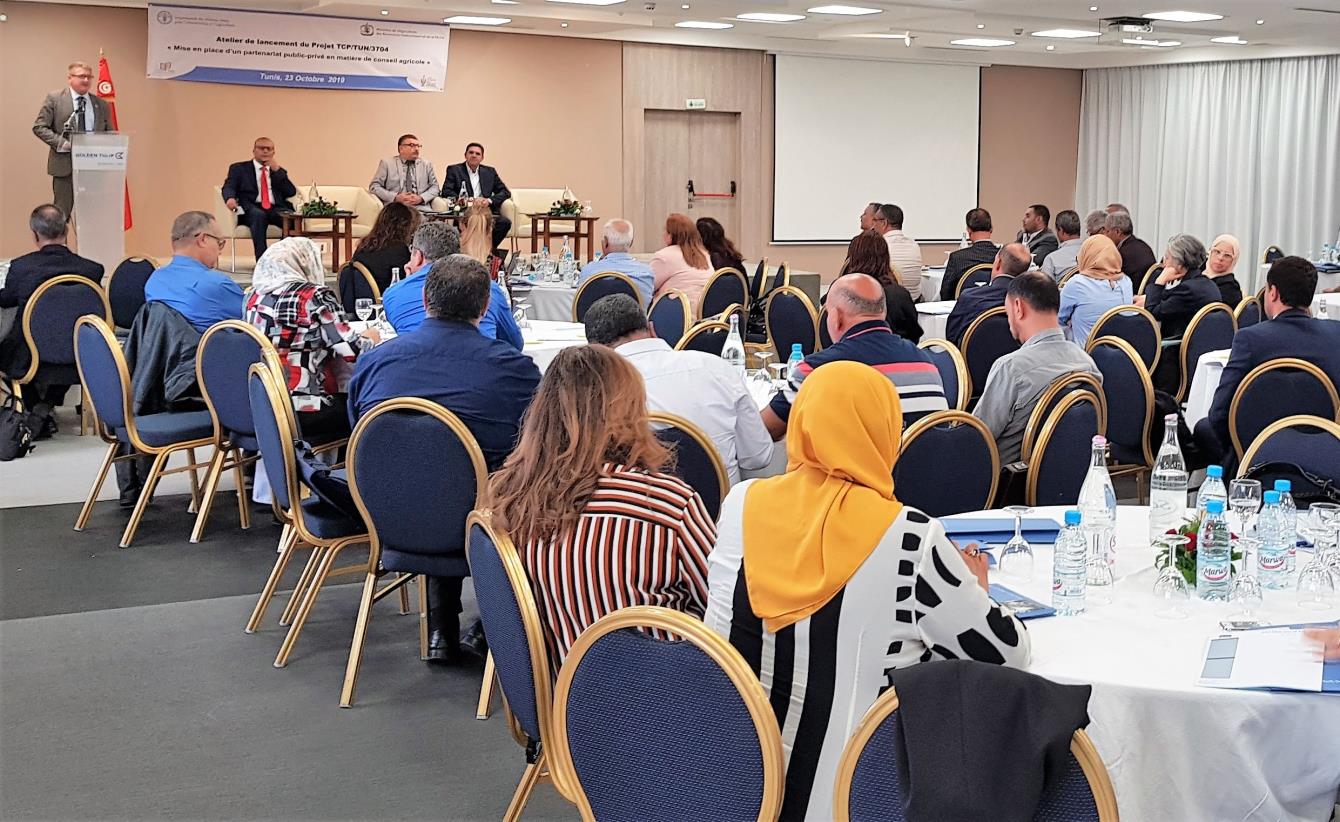Towards the Establishment of a Public-Private Partnership on Agricultural Extension

©FAOSNE Philippe Ankers, FAO Sub-regional Coordinator for North Africa, addressing the inaugural session
23 October 2019. Tunisia The United Nations Food and Agriculture Organization (FAO) and the Tunisian Ministry of Agriculture, Water Resources and Fisheries inaugurated this morning a start-up workshop for a project to enhance the public-private partnership in agricultural extension and advisory services.
This project opens the door to a successful partnership between the government and the private sector for the benefit of small-scale farmers seeking reliable and localized agricultural advice responding to their needs.
FAO and the International Fund for Agricultural Development (IFAD) estimate that there are at least 500 million family farms in the world. These farms occupy a large part of the agricultural land and produce nearly 80% of the world's food. This requires an effective agricultural advisory service, which can disseminate necessary information and pass it on to farmers on time.
In his opening remarks, Mr. Philippe Ankers, FAO Sub-Regional Coordinator for North Africa and Representative in Tunisia, stressed that "we are seeing an increase in demand for agricultural extension services and advice adapted to the needs of these small farmers. It is about designing and communicating better technology packages to farmers, while encouraging innovation and creativity.”
He added that the extension and advisory service "must be able to mobilize producers and listen to their needs and demands, put them in touch with other actors in the agri-food system, and facilitate learning and innovation between different actors."
At the beginning of his speech, Mr. Boubacar Al-Karay, Chief of Staff of the Minister of Agriculture, Hydraulic Resources and Fisheries, expressed the satisfaction of the ministry with FAO’s cooperation in Tunisia.
In his address, Mr. Al-Karay called for "redefining the role of the agricultural extension worker in ensuring the sustainability of agriculture and improving the income of smallholders through a participatory and associative agricultural council." He also emphasized the importance of using Information and Communication Technologies (ICTs) in support of agricultural extension.
Mr. Naceur Amdouni, representing the Tunisian Union of Agriculture and Fisheries, reaffirmed "the key role of agricultural advice in the protection of agricultural sectors and marine fisheries." He also confirmed that this project meets the immediate needs of the sector and puts an end to the “technological illiteracy among smallholders."
Spread over the course of two years, the project benefits from the partnership between FAO and the Agricultural Extension and Vocational Training Agency to reform the agricultural extension system to strengthen the role of extension at the regional level and to provide an adapted framework based on innovative methods to farmers.
The key player in this partnership is the Tunisian Union of Agriculture and Fisheries, given its experience and commitment to organizing farmers. The project will support the capacity building of extension workers and other public and private partners so that they will be able to provide improved advice and support to agricultural producers.
